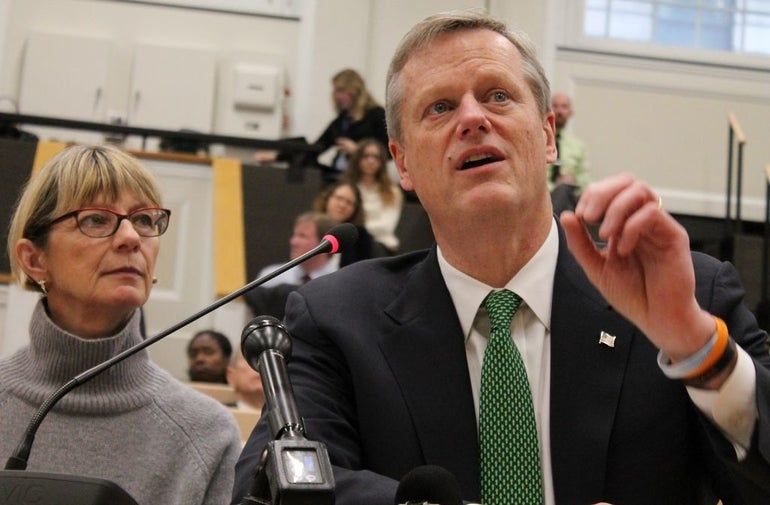The Massachusetts Health and Hospital Association (MHA) is praising Gov. Charlie Baker’s new plan to expand efforts to battle opioid addiction in the Bay State.
Steve Walsh, president of the industry group representing Massachusetts hospitals and healthcare systems, said in a statement Tuesday that Baker’s proposal would improve access to treatment, further prevent opioid misuse, and expand care coordination between acute and community-based providers. He said MHA leaders and members strongly support the plan, known at the CARE Act, which was proposed in November is now being vetted by lawmakers.
Baker and Health and Human Services Secretary Marylou Sudders testified before a legislative committee on Tuesday afternoon for more than 90 minutes, fielding scores of questions from lawmakers on the proposal.
The governor’s bill, according to the administration, would create new pathways for addicts to access treatment, enable more schools to educate young people on the risks of opioids and more directly align the healthcare system with the needs of those struggling with addiction.
The governor has proposed to give the state more control over the credentialing of recovery coaches and the licensing of treatment facilities, make the overdose-reversing drug Narcan easier to purchase at pharmacies, and allow emergency room clinicians or police to have patients transported involuntarily to a treatment facility for 72 hours if they pose a risk to themselves or others.
The package is a follow-up to the 2016 law that made Massachusetts the first state in the country to put a limit – seven days – on initial opioid prescriptions, among other provisions. Since then, the number of opioid prescriptions declined 29 percent and opioid overdose deaths have begun signs of a downward trend for the first time since 2010, according to state data last updated in December.
The 2016 law included a $2-million trust fund to help schools set up substance abuse screening and education programs.
Aspects of Baker’s latest opioid proposal may prove controversial. Dr. Henry Dorkin, president of the Massachusetts Medical Society, testified on Tuesday members of the professional group representing Massachusetts doctors have concerns about a part of the proposal creating a new board to dictate dosages or prescribing limits. He said members are concerned about Baker’s proposal to allow doctors to commit patients for 72 hours of involuntary treatment in some cases.
“We continue to worry that data do not support this, and that the present lack of treatment infrastructure would lead to boarding involuntarily committed patients in emergency departments,” Dorkin said, in prepared comments.

